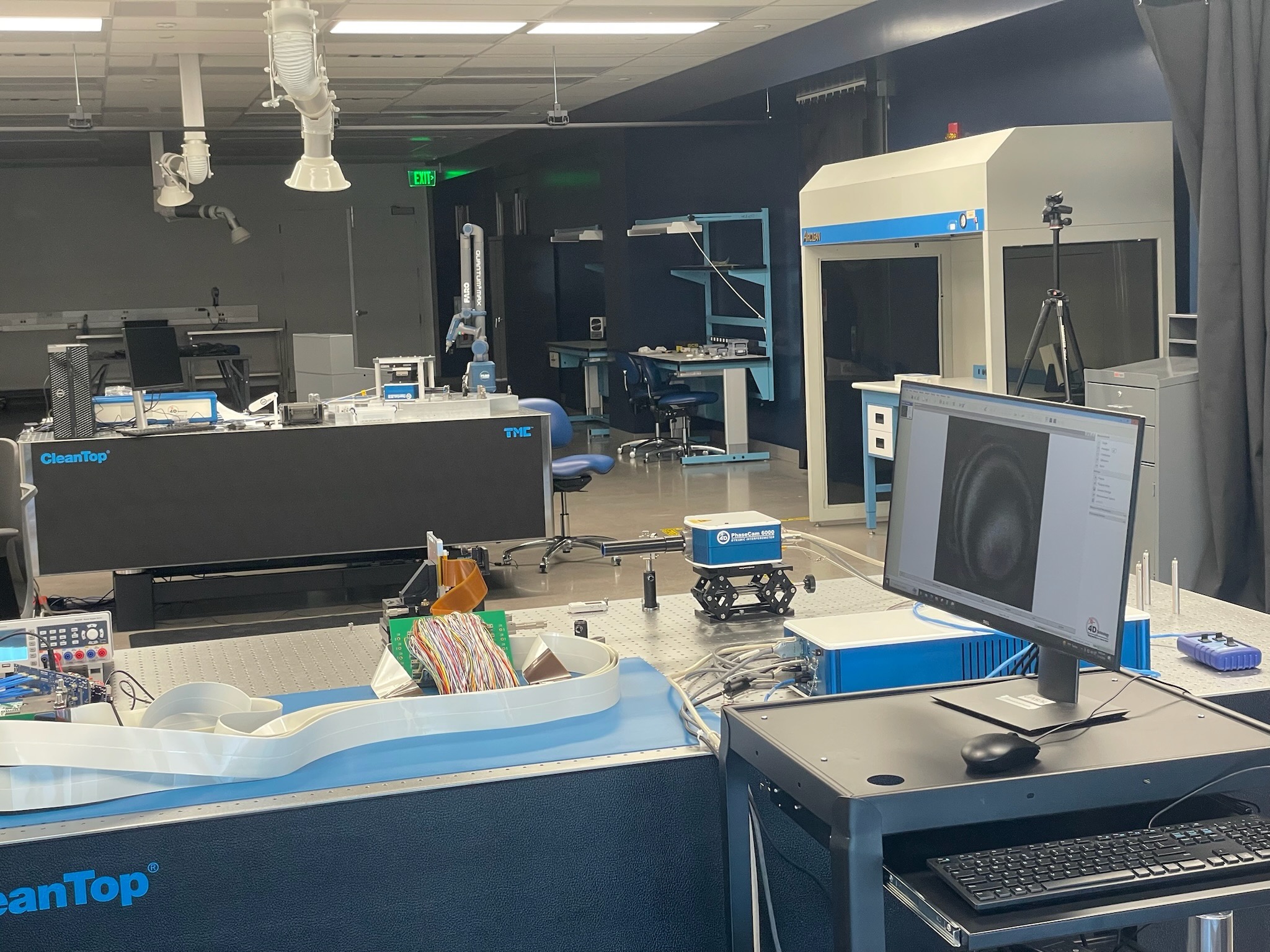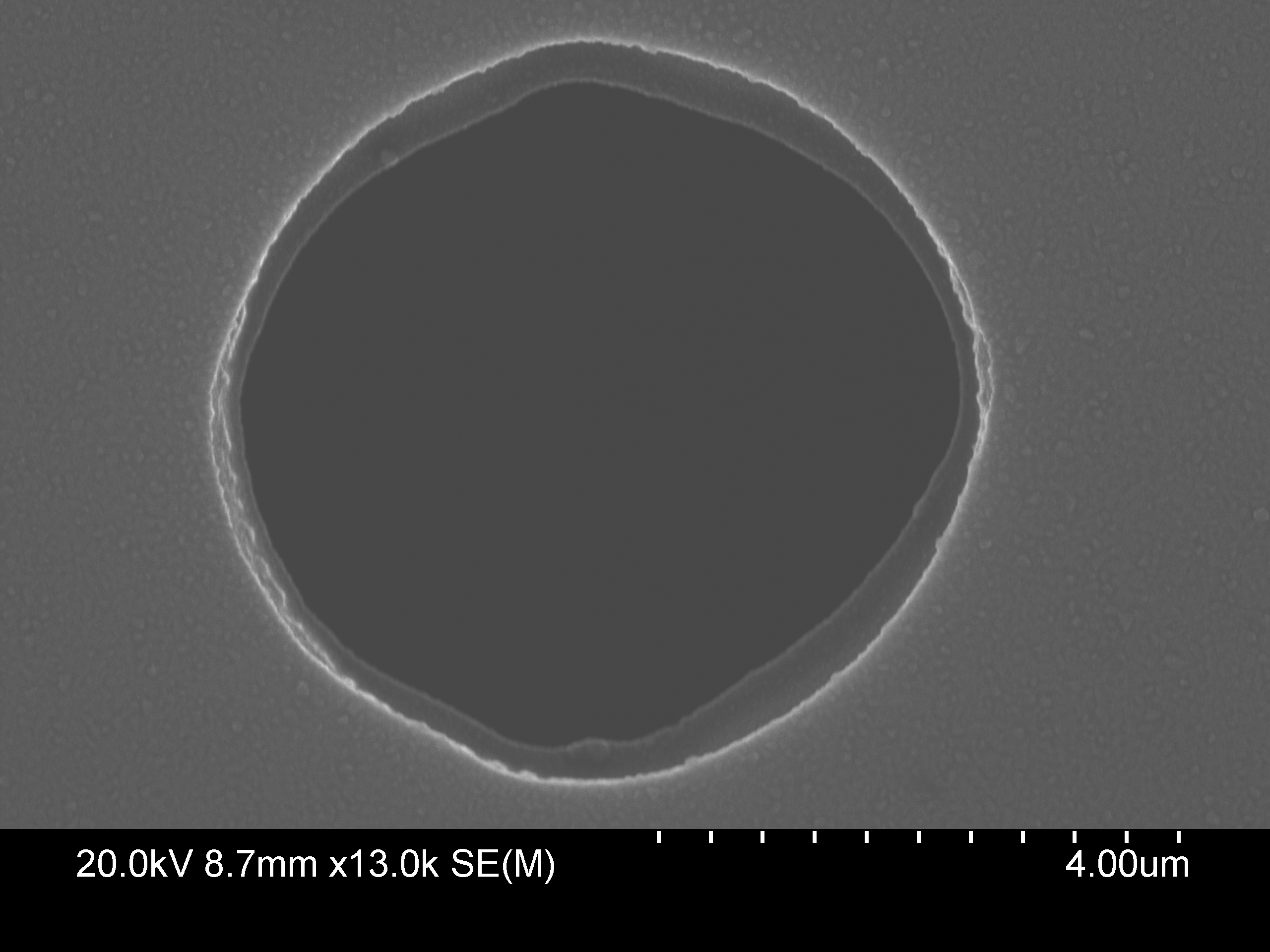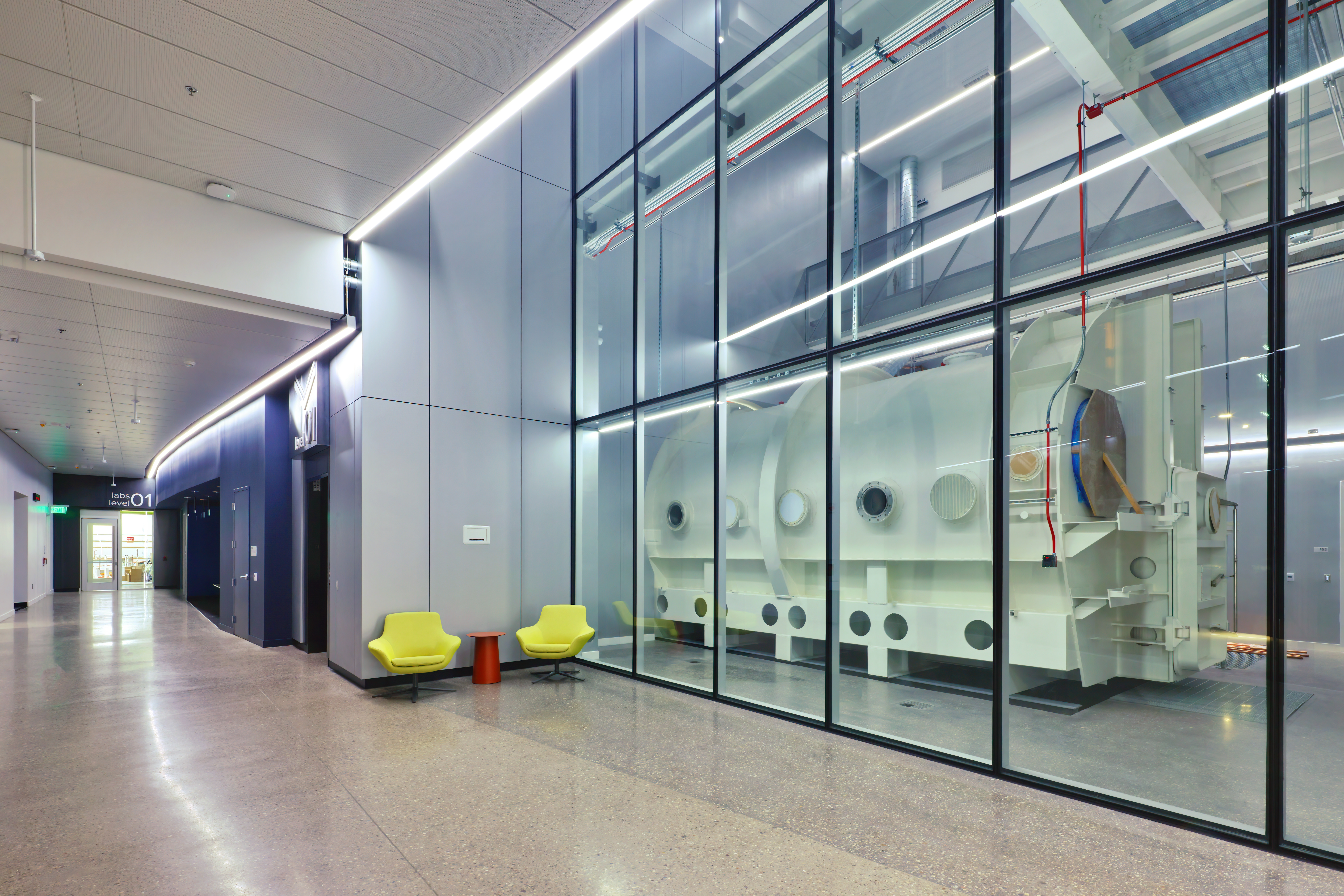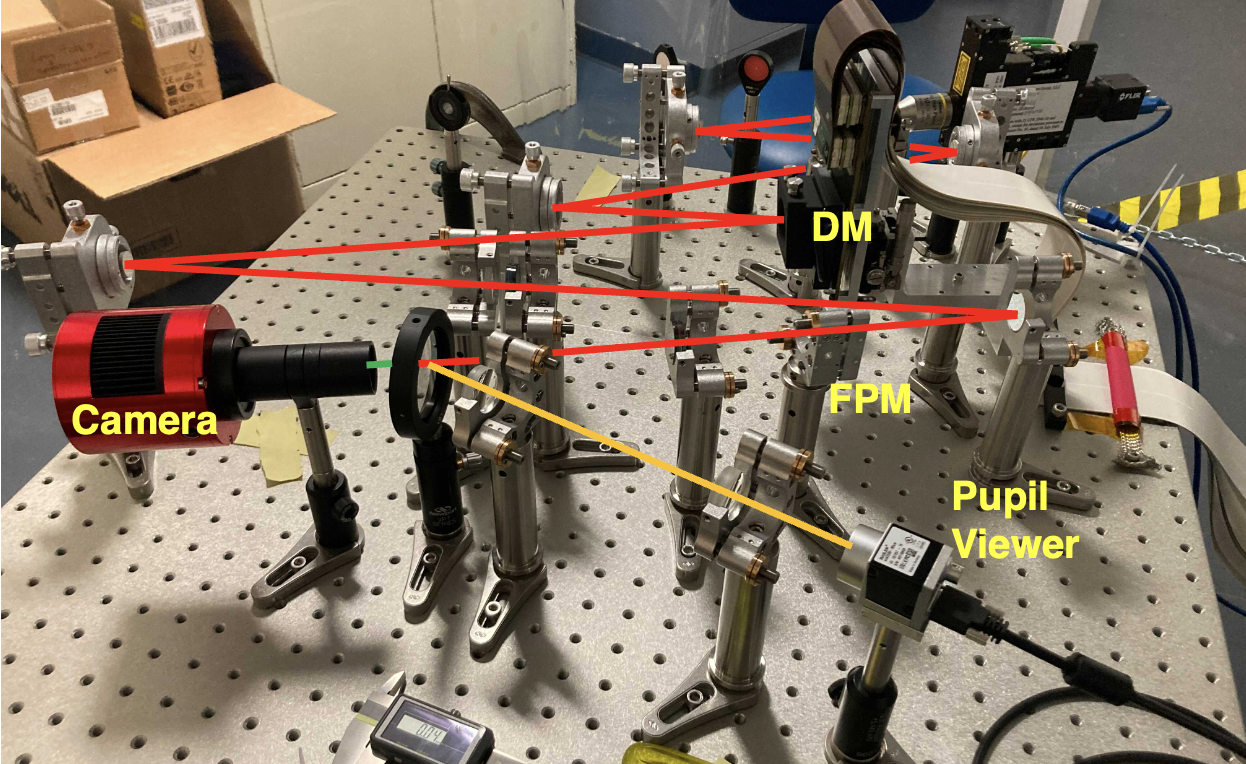Facilities
UASAL has a broad portfolio of facilities and equipment to enable quick turn around studies of new approaches to astronomical space instrumentation.
UA Space Astrophysics Lab Facilities
UA offers a world-class research environment in ground and space-based astrophysics with strong interdisciplinary programs across the Departments of Astronomy, Optical Sciences, Planetary Sciences, Physics, and the UA Data Science Institute. UASAL collaborates closely with UA fabrication facilities including the Richard F. Caris Mirror Lab, the University of Arizona Nano Fabrication Center, the Imaging Technology Laboratory, and the Arizona Space Institute.
The Space Coronagraph Optical Bench (SCoOB)
As part of efforts to advance exoplanet and disk imaging technologies UASAL operates a vacuum-compatible, high-contrast testbed which allows us to test new devices and software and evaluate their potential to improve the sensitivity of future space telescopes to planets around other stars and debris disks (e.g. asteroid belts, zodiacal dust, and Kuiper belts). Our testbed is currently configured for visible wavelengths and featuring a 952 actuator deformable mirror. We are in the process of extending SCoOB to ultraviolet wavelengths to evaluate the potential for detecting ozone on exoplanets.
Recent results include:
- Design and Assembly paper, Ashcraft et al 2022 (Proceedings of SPIE).
- The space coronagraph optical bench (SCoOB): 4. vacuum performance of a high contrast imaging testbed
- Performance predictions and contrast limits for an ultraviolet high-contrast imaging testbed
- Tolerancing and manufacture of microfabricated pinholes: creating high-quality wavefronts for improved high-contrast imaging testbed performance
Optical Metrology and Testing
Our lab’s metrology equipment includes:
- 4D PhaseCam 6000 interferometer
- 4D PhaseCam 6100 interferometer
- Faro Quantum S 7-axis 2.0m arm PCMM (portable coordinate measuring machine)
- Optical Perspectives Group Point Source Microscope (PSM)
Thermal Vacuum Testing
Our lab facilities at Steward Observatory include a vibration isolated Thermal Vacuum Test chamber (manufactured by Rydberg Vacuum Sciences) for testing sensitive payloads within a high/ultrahigh vacuum.
- The chamber interior is 1.2m in diameter and 2.2m in length. The usable vertical dimension with the vibration isolating optical bench installed is less than 0.5m.
- The vacuum’s capability is as low as 1e-8 via turbomolecular pump (1e-8 Torr with LN2 cold plate).
- The design temperature range spans from -150 C to 150 C Maximum with the temp ramp rate: +/- 2 C/min.
- LN2: Chamber cooling is provided via LN2.
- Minus-K 100CT-2CV Passive Vibration isolation stage
Applied Research Building
We build flight instruments in a 2000 sq foot UArizona Applied Research Building ISO7 (class 10,000) cleanroom laboratory equipped with optical testbenches and clean flow benches.

Prototyping and 3D printing
UA students should feel free to contact us if they have space or astronomy related components they would like to prototype. UASAL equipment includes: a Dremel LC40 laser cutter and 3D printers, a Dremel 3D40, and a Markforged Onyx Pro printer that allow rapid prototyping. A far
UA Core facilities
Custom Microfabricated Optics
UA is home to multiple micro and nanofabrication facilities used by our lab, including https://mfc.arizona.edu/ and the SC Micro/Nano Fabrication Cleanroom. UASAL has developed processes for fabricating optics in silicon nitride membranes on silicon wafer substrates, such as precision micro-scale pinholes Jenkins et al 2023, figure below and combination reflective Lyot stops/self coherent camera masks.


Scanning Electron Microscopy
UASAL has experience and access to the K-ALFAA, The Kuiper-Arizona Laboratory for Astromaterials Analysis located in the Lunar and Planetary Laboratory on campus, for scanning electron microscopy of devices and samples.
Testing
The UA applied research building is home to a range of space Space Assembly & Test Facilities including a large space simulation chamber (Internal Shroud Dimensions: 129″ at Widest X 118″ High X 20′-6″ Deep (to rear Chevron wall)), a Sentek Dynamics slip table (HST900M, 3000kg payload, 5-1500Hz), high-bays, and a radio anachoic chamber.

Ground-based Astronomical Observatories
Steward Observatory is a partner and home to a wide range of world-class observatories, among these are the Large Binocular Telescope and 6.5m aperture telescopes located in both the northern and southern hemispheres. For details see our observatories page.
